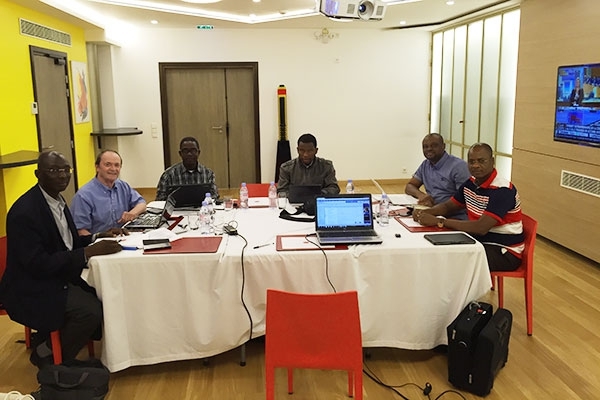AfWA Scientific and Technical Council Task Force dealing with Non-Revenue Water met in Paris, France, from June 20th to 22nd 2015 in order to finalize the report relating to this program initiated three years ago with the support of the USAID/FABRI. In the first phase of the project, 19 water utilities taking part in this program were audited by the experts of the African Water Association who thereafter made their different diagnostic. Then, in the second phase, Performance Improvement Plans were carried out for each utility.
At the end of this very important phase of the program, the Task Force dealing with Non-Revenue Water initially met in Dakar, from May 22nd to 24th 2015 where the report was worked out by the whole of the 14 members of the Task Force, then finalized at the meeting of Paris. According to the report, Non-Revenue Water represents an important loss for the utilities; the report also revealed a disturbing figure: The total losses (real and apparent) in a volume of water of the various audited utilities account for approximately 37% of the volumes carried into the networks. The report identified factors of weak performances of some utilities, as well as factors which make it possible for other utilities to better control this plague.
From the phase which has just been completed, the work group concluded that over the 19 audited utilities, 11 were equipped with departments or units dedicated to Non-Revenue Water. They had policies and strategies which needed to be brought up to date by integrating NRW related aspects. Moreover, the report noted that the staff dedicated to Non-Revenue Water entities was insufficient to carry out efficient practices. The report also deplored the lack or weakness of NRW dedicated budget. Therefore, AfWA experts drew the attention of donors on the interest of investment in the programs relating to the reduction of Non-Revenue Water which, according to them, represent sure and fast return of investments.
The continuation of this program will consist in disseminating best practices acquired from the first phase, through workshops and roundtables. Four modules are envisaged by the end of the year 2015.

 English
English  Français
Français 
